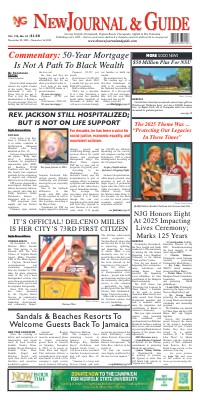Political News in Virginia
Digital Download: Speed Cameras In Construction Zones – A New Revenue Front?
Across Virginia, new law and local initiatives are deploying automated speed-monitoring cameras in construction zones—fines begin after a warning period—raising key questions about enforcement fairness, revenue motives and whether safety or budget-boosting is the primary driver.
#VaTrafficSafety #WorkZoneCameras #ConstructionZoneSpeeding #PhotoEnforcement #VirginiaLaw #RoadWorkerProtection

By Delegate Cliff Hayes Jr.
Across Virginia, there’s a new tool aimed at curbing dangerous driving in work zones: automated speed enforcement. In New Kent County, a 10-mile stretch of I-64 under construction is now using LiDAR-equipped vehicles to monitor speeds, targeting drivers traveling 11 miles per hour or more above the posted limit. After an initial warning period, violators will receive a $100 summons by mail.
Proponents say the effort is about safety, protecting highway workers and drivers in areas where crashes have increased. Critics, however, see a potential revenue stream behind the safety message. If enforcement is consistent and traffic volume remains high, New Kent County could generate millions of dollars in fines in a short period; estimates suggest roughly $5 million in the first two months is possible.
When enforcement meets high-volume traffic, fines become inevitable; and lucrative, but is it worth it?
But is this kind of enforcement coming to you?
It might be. In Hampton Roads, the City of Suffolk has already implemented speed cameras along Routes 58 and 460 in active construction zones. Similar measures are under way in Fairfax County, where cameras in work zones issue $100 citations after a warning period. Other localities are exploring the same technology as they seek to improve safety and reduce work-zone crashes.
Counties and cities must still navigate Virginia’s photo-enforcement laws, which limit where and how cameras may be placed. As this model spreads, local governments should be transparent about how revenue will be used and ensure fairness in enforcement.
Speed cameras can save lives; yet they also raise important questions about privacy, equity, and whether safety or revenue is truly in the driver’s seat.
“When enforcement meets high-volume traffic, fines become inevitable; and lucrative. But is it worth it?”


 Hampton Roads Community News1 week ago
Hampton Roads Community News1 week ago54-Year-Old MEAC Tournament Is Keeping Up With The Times

 Black Community Opinions1 week ago
Black Community Opinions1 week agoBaltimore City Launches New Initiative To Help Poor Avoid Homelessness

 Education7 days ago
Education7 days agoDigital Download: Technology Priorities For A New Administration

 Black Business News4 days ago
Black Business News4 days agoIn Memoriam: Thomas H. Watkins, 88, Noted N.Y. Publisher

 National News3 days ago
National News3 days agoVirginia To Inaugurate 1st Woman Governor, 1st Muslim Lt. Governor and 1st Black Atty. General

 Black History3 days ago
Black History3 days agoHampton Roads Honors Dr. Martin Luther King Jr.

 Black Business News3 days ago
Black Business News3 days agoVideo: Lynn Jones-Turpin and the Jacksonville Free Press Are Not Fake

 Black History3 days ago
Black History3 days agoDr. King’s Poor People’s Campaign Foretold America’s Affordability Crisis




















